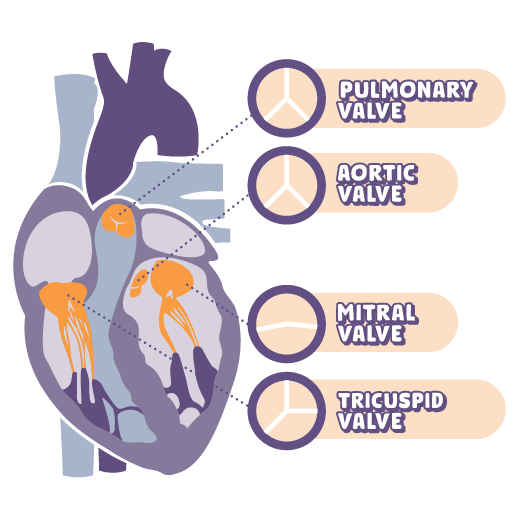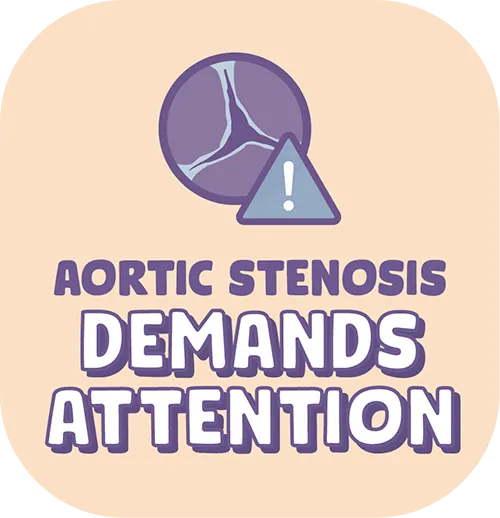WHAT IS HEART VALVE DISEASE?
Ask to Get ScreenedPEOPLE HAVE VERY LITTLE AWARENESS OF HEART VALVE DISEASE
It might not be as well-known compared to other types of heart disease, but heart valve disease can happen at any age, regardless of race or gender—and adults over 65 are at the highest risk.
3 out of 4 people know little to nothing about heart valve disease.
LET'S CHANGE THAT!

UNDERSTANDING YOUR HEART AND ITS VALVES
Your heart is an essential organ that depends on its 4 valves to help regulate blood flow throughout the body.
Each valve has thin flaps called leaflets that act as one-way doors, opening and closing with each heartbeat. When your valves are healthy, the leaflets open fully to keep blood flowing smoothly in the right direction and close tightly to prevent blood from flowing backwards.
As you get older, you can develop heart valve disease, where one or more of your valves may stop working properly. This condition makes it harder for your heart to pump blood through your body.

HEART VALVE DISEASE WATCH-OUTS

Your age matters
The risk of heart valve disease increases with age, especially if you are over 65.

Diet and exercise won’t stop it
Diet and exercise are great for your heart, but they won’t stop heart valve disease.

You won’t see it coming
Heart valve disease can appear with no symptoms and may be confused with general signs of aging.
There are different types of heart valve disease,
AND YOU DON'T WANT ANY OF THEM.

TYPES OF HEART VALVE DISEASE
Two of the most common are valve stenosis and valve regurgitation. Both can be deadly if left untreated.

AORTIC STENOSIS IS ONE OF THE MOST COMMON TYPES OF HEART VALVE DISEASE
It's caused by a buildup of calcium, causing the valve to grow dangerously narrow. When aortic stenosis becomes severe, we call this heart valve failure.
Get the Facts
EARLY DETECTION IS KEY. WAITING IS NOT WINNING
Heart valve disease can become worse over time and even be deadly without treatment. Asking your doctor to listen to your heart is the first line of defense for identifying heart valve disease and deciding when treatment is necessary.
How to Talk About Screening
Am I at Risk?
It's not always easy to tell if you or a loved one has heart valve disease. Find out your level of risk.
Take a Risk Assessment


